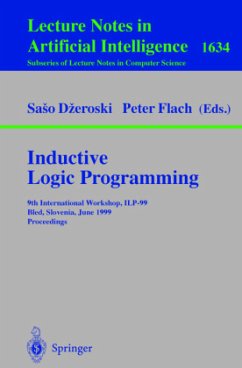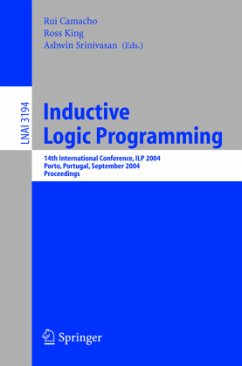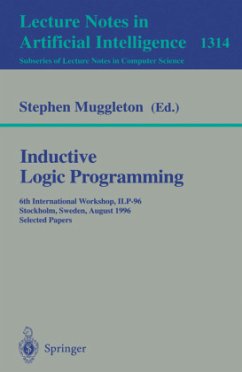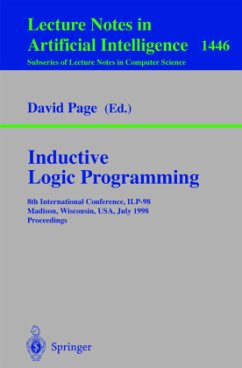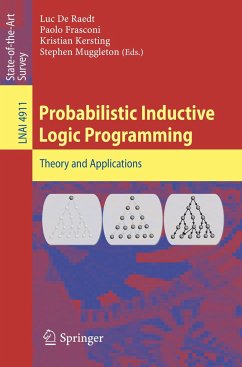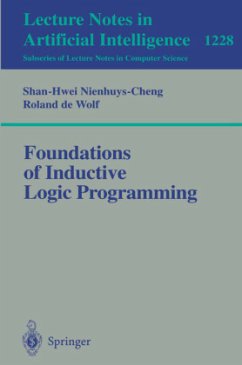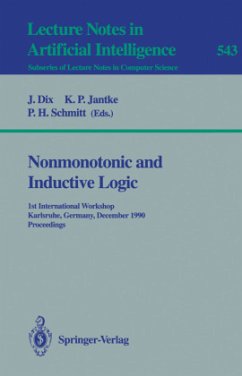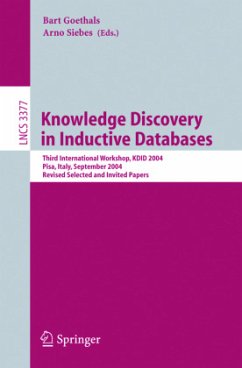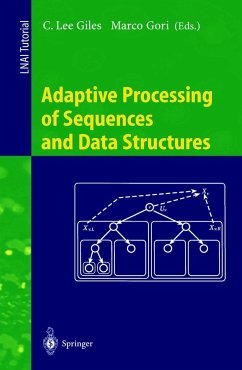
Inductive Logic Programming
7th International Workshop, ILP-97, Prague, Czech Republic, September 17-20, 1997, Proceedings
Herausgegeben: Lavrac, Nada; Dzeroski, Saso
Versandkostenfrei!
Versandfertig in 1-2 Wochen
39,99 €
inkl. MwSt.

PAYBACK Punkte
20 °P sammeln!
This book constitutes the refereed proceedings of the 7th International Workshop on Inductive Logic Programming, ILP-97, held in Prague, Czech Republic, in September 1997.The volume presents revised versions of nine papers in long version and 17 short papers accepted after a thorough reviewing process. Also included are three invited papers by Usama Fayyad, Jean-Francois Puget, and Georg Gottlob. Among the topics addressed are various logic programming issues, natural language processing, speech processing, abductive learning, data mining, knowledge discovery, and relational database systems.





